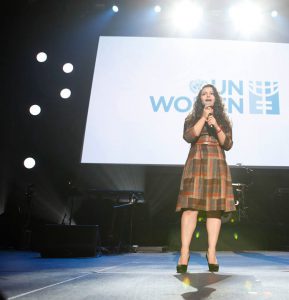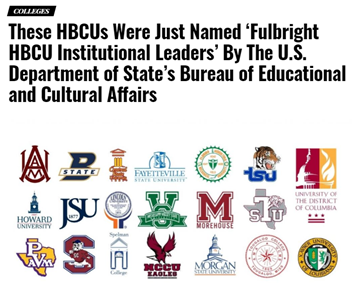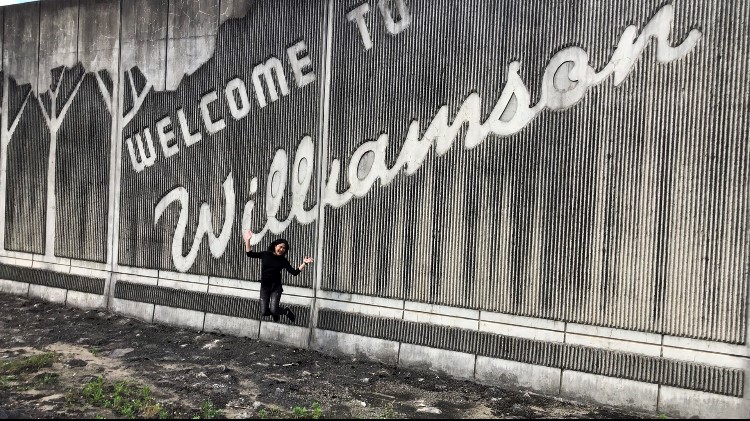
Aya Chebbi, 2012-2013, Fulbright FLTA from Tunisia, speaking at The United Nations 59th Session of the Commission on the Status of Women (CSW) in New York City, April 2015
Aya Chebbi, Fulbright Foreign Language Teaching Assistant alumna from Tunisia (2012-2013) and award-winning pan-African blogger and activist, was invited to speak at the 2015 United Nations Commission on the Status of Women. Here, she reflects on her experience being invited to and attending the event.
When I first received the invitation from UN Women to speak at the 20th anniversary event commemorating the Beijing Declaration and Platform for Action at the 59th Session of the Commission on the Status of Women, I was a bit surprised.
Surprised, not only because I was identified from a pool of millions of young voices around the world, but also because UN Women had finally taken a big step in providing a crucial space for a young voice such as mine to speak at a high level public event.
Before receiving the invitation, I had heard that over 2,000 people were expected to attend and that Heads of State, the Secretary General of the United Nations, the Executive Director of UN Women, senior political leaders, eminent gender equality advocates, dignitaries, musicians, and notable artists – would all be in attendance.
I opened the invitation wondering why I’d been invited and what was expected of me. Between opening the email and reading the invitation, I thought this would be another huge event where young voices are used superficially by the UN as the faces celebrating and supporting their agenda, no more, no less. I also thought that maybe I was nominated and chosen because I come from a region where recently people started to matter more in the news: North Africa.
In the invitation, I was addressed as a distinguished women’s advocate and peace activist, just the way I identify myself, only without the “distinguished” part, because I believe I am doing work with people around the world who are considered more distinguished “changemakers” than me, and who inspire me every day to continue improving the reality of young women, our reality.
The invitation indicated that I am “a great voice that will be raised to break the chains of gender-based discrimination, stereotypes and violence. Empowering women is empowering humanity!” and that “We would be honored if you would join us at this historic event and advocate for a world without gender wage gaps and unequal opportunities, a world without low representation of women in leadership in the private sector and in public office, a world without child marriage, violence and other violations of rights of women and girls.”
It all sounded perfect, but I was not really convinced as to why my voice would be important at this particular event. Why I should I fly from Tunisia, all the way to New York, when I already have lots of work on my plate in March?
Then, I read, “Given the relevance of Tunisia as a relatively successful new democracy among the countries of the Arab Spring, yours is an important voice from the region. Yours will be the voice of the new generation of feminists.” After reading this part of the invitation, I decided, that yes, I have to attend the United Nations 59th Session of the Commission on the Status of Women. My first thought was that I have to tell the organizers it’s not the “Arab Spring,” but the “Revolution of Dignity.” I have to also tell them that we are not “new” feminists, we are a continuation of a legacy of great feminists and a history of my region’s ongoing struggles and victories; that we are not a “relatively successful new democracy” and we already have had “milestones in democracy, freedom and dignity.”
The invitation had seemingly written a great part of my talk for me and this seems to happen to me every time I feel challenged by these institutions. In order to accept such invitations, I have to make sure that I am actually needed in New York on the UN stage more than where I am at the moment.
I was given three to four minutes to speak at the UN; I couldn’t ask for more when I knew that former U.S. Secretary of State Hillary Clinton had an equal amount time to speak herself. I received the program and then realized I would be speaking after Ellen Johnson-Sirleaf, former Secretary of State Hillary Clinton, New York City Mayor Bill de Blasio, Melinda Gates, Farhan Akhtar, Phumzile Mlambo-Ngcuka and before actress Patricia Arquette as well as other public figures.
And, then, suddenly, it was my time to speak on stage:
https://www.youtube.com/watch?v=L0Gt9FerEBI
Many people complement you right after you’ve given a speech when it’s powerful and when the words are chosen perfectly for tweets. But, what really made me proud at the end of the event was that people told me, “I appreciate what you said” which means that it was powerful but truthful. I didn’t want to deliver a perfect speech saying, “women’s rights are human rights” just like what Hillary Clinton said in 1995 and repeated again in 2015. I wanted to say instead that next year, “our stories shall not go unrecognized,” that “our stories are recognized right now.” We are a generation of imperfectly worded speeches and rebellions with critiques, a generation that doesn’t use simple data in a complicated language, or address simple people with complicated titles.
The highlight of this event for me was neither entering the press room (with 10 cameras taking pictures of me while walking on the carpet), nor meeting celebrities and speaking on the same stage as them. The big highlight was meeting the amazing Maysoon Zayid on my way to the restroom. If you don’t know her yet, don’t miss her TED Talk, “I got 99 problems…palsy is just one.” I was so happy to meet her and speak with her in Arabic. She immediately started telling me jokes with her lovely sense humor.
Right after my speech, Maysoon Zayid had been on stage for a few minutes when she said, “Don’t leave women with disabilities behind!” to which the audience gave her a standing ovation. We exchanged contact information at the end of the event and she told me that “I am already feeling so proud of the lady I just met few minutes ago in the restroom.” Likewise, I was feeling so proud of her with the image of Arab Muslims and people with disabilities she presents to the world.
Unlike some UN events where I leave very frustrated by the slow process of how things are done within a global bureaucracy with the “perfect program for the perfect audience,” and unsatisfying outcomes, this event was one where my voice was heard and hopefully, conveyed many of the concerns of my generation.



No Comments